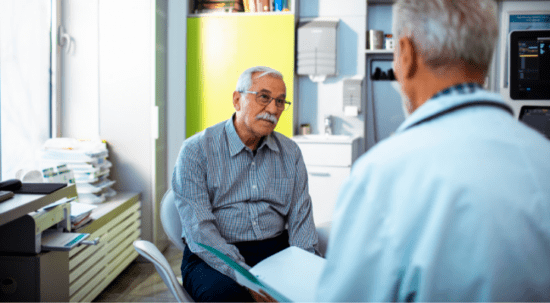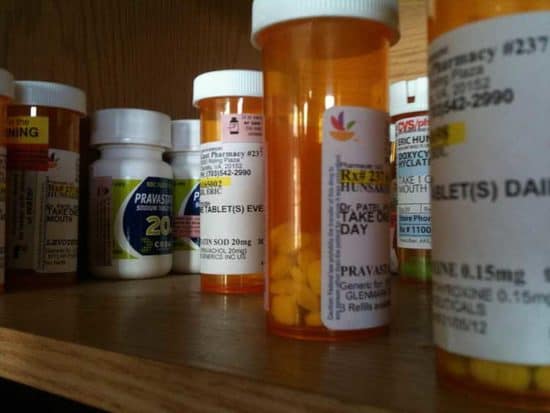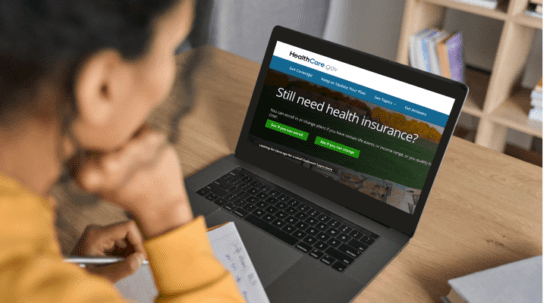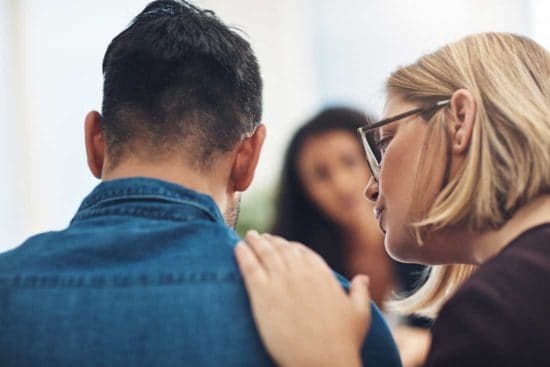Information on vaccinations for immigrants
Learn about vaccines doctors recommend and how to get them. Get information on vaccines for immigrants.
What are vaccines?
Vaccines are typically shots that help prepare your body to fight disease so you will not get sick. Vaccines help protect you from getting infectious diseases like COVID-19 and the flu.
When everyone gets vaccinated, it is harder for diseases to spread. This is called herd immunity. Even if you do get sick, vaccines prevent you from getting seriously ill.
Vaccines contain weakened or inactive parts of a particular virus, bacteria, or similar antigens that trigger the body’s immune response. All vaccines are tested to make sure they are safe and effective.
Some vaccines can cause mild side effects. These include pain or swelling at the injection site and a low-grade fever. These are treatable with medicine and go away within a few days. It takes a few weeks for vaccines to start working.
What are boosters?
Boosters are extra vaccine shots you get after finishing your initial vaccines. Some vaccines need boosters to keep you protected for a long time. Staying up to date with vaccines and boosters helps you stay healthy and prevents the spread of disease.
Why vaccines matter
Vaccines keep you from getting sick and missing school or work. They also stop you from spreading illness to family and friends. Vaccines are especially important for people who are at high risk of developing serious complications. Vaccines reduce the risk of serious illness and hospitalization.
When to get vaccinated
Vaccines are recommended throughout your life. Some vaccines are most effective when you are young, others when you are older. You may need other vaccines based on your health, lifestyle, job, or travel.
Your doctor will let you know which vaccines or booster shots are recommended for you based on your age. Doctors have a specific schedule for vaccinating children. Your child’s pediatrician will let you know when it is time for your child’s next vaccine.
Vaccine types
Certain vaccines are required for school, daycare, and healthcare workers depending on state laws. These are usually for:
- Pneumococcal and meningococcal conjugate
- Diphtheria, tetanus, and whooping cough
- Haemophilus influenzae type b
- Measles, mumps, and rubella
- Varicella (chickenpox)
- Hepatitis A and B
- Rotavirus
- Polio
Both adults and children are recommended to get certain vaccines regularly, which include:
- COVID-19 vaccine: Everyone 6 months and older is recommended to get an updated COVID-19 vaccine. The best place for information on COVID-19 is the CDC website.
- Influenza (flu) vaccine: The flu shot is recommended for everyone 6 months and older every year. September and October are generally good times to be vaccinated against the flu. Learn more information about the flu vaccine.
- Td or Tdap vaccine: preteens and adults should get a shot every 10 years to boost their immunity. Learn more about diphtheria, tetanus, and whooping cough.
| If you have feel sick, it is a good idea to get tested for the flu or COVID-19. You should also get tested if you have been around someone who tested positive. |
Find more information on recommended vaccines at CDC.gov:
- Vaccines recommended for children
- Vaccines recommended for adults
- Vaccines recommended for travelers
Vaccine requirements for immigrants
CDC requires all immigrant applicants, including children, to get a medical exam. You must show proof that you received the required vaccines if you are applying for:
- An immigrant visa
- Lawful permanent residence (green card)
If you do not have proof of the required vaccinations, the civil surgeon will give them to you at the exam. Fill out Form I-693 and take it with you to your medical exam. Bring a copy of all your vaccination records with you.
Refugees who had a medical exam in another country will not need to get the vaccines again when they come to the USA.
Find more information from USCIS about vaccination requirements for immigrants.
| If you recently arrived in the USA, make sure you are fully up to date with recommended vaccinations. Schedule an appointment with a primary care doctor. They can review your vaccine records and let you know if you are missing any important vaccines. |
Vaccine requirements for children
Vaccine requirements for children are standard for public and private schools and activities such as sports. When you enroll your child, you will have to show proof of their vaccination. Some states may offer exemptions for religious reasons.
These requirements are in place to prevent outbreaks and make sure your child is learning in a safe environment. It is important to learn about your state and school rules.
Where to get vaccinated
Vaccines are available to everyone regardless of immigration or health insurance status. The COVID-19 vaccine is available for free to everyone. Most insurance plans pay for flu vaccines.
You can get vaccinated at your doctor’s office. Schools, workplaces, and religious centers may offer free vaccine days. You can also find vaccines at most pharmacies and urgent care centers.
If you do not have health insurance, you can get a free or low-cost flu shot at a community health center or public health department.
To find vaccine locations near you:
- Search vaccines.gov
- Call 1-800-232-0233
- Text your zip code to 438829
Tips to stay safe after being vaccinated
- Wear a mask and frequently wash your hands to prevent the spread of disease.
- Check-in with your primary care provider for routine vaccinations.
- Get tested if you feel ill or have been around someone who tested positive for flu or COVID-19.
The information on this page comes from CDC.gov, USCIS, and other trusted sources. We aim to offer easy to understand information that is updated regularly. This information is not legal advice.



